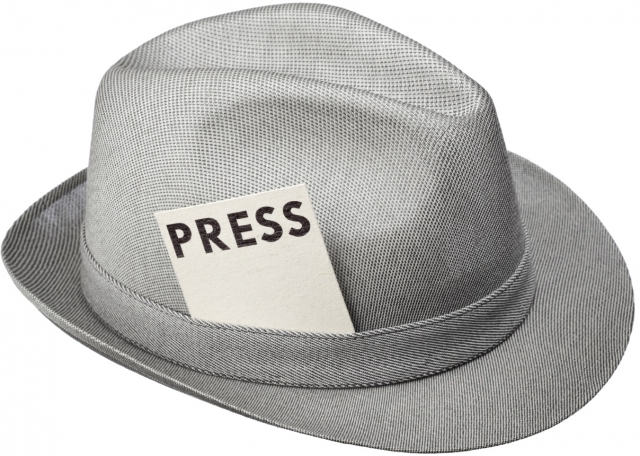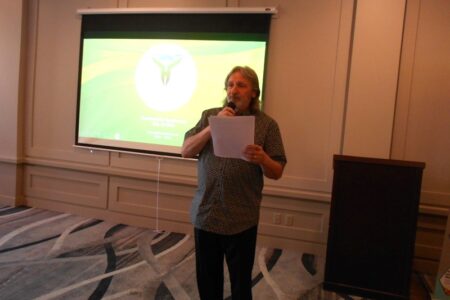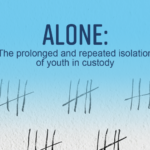COMMENT: Free speech, slander, and small town drama
I will agree completely with anyone who claims the issues we untangle below are petty, but we at the Telegraph feel obliged to defend ourselves against a number of unsubstantiated attacks leveled against our news coverage and editorials—specifically mine—by certain members of council who dislike what we’ve written.
Two weeks ago we reported a phone interview with Coun. Kathy Wallace in which she said I’d “made stuff up,” accused me of presenting opinion as fact, and indicated that a letter would soon arrive from the city detailing the complaint.
Well, we got the letter—attached below—written by Mayor Greg Granstrom, but it doesn’t present any evidence of lying nor any details of a complaint beyond one error we published and promptly corrected and apologized for. But the letter is liberally sprinkled with unsubstantiated generalizations intended to damage the Telegraph’s reputation.
THE MAYOR FLIES SOLO
The mayor wrote the letter on behalf of the City of Rossland, but neglected to ask council first, as is customary for most official city correspondence.
While council approval is not strictly necessary, it may have been wise, particularly before choosing to copy his letter to the Trail Daily, the Rossland News, and the BC Press Council without first making any attempt to raise his problem with us.
On Monday evening, Coun. Jill Spearn brought up the mayor’s letter and asked him about the “concerns that were looked on as being inaccurate by yourself.”
“You write ‘we,’” Spearn said. “When you use the word ‘we,’ who is the ‘we’ you are referring to?”
The mayor replied, “The City of Rossland.”
Coun. Kathy Moore said, “I had a concern about that too, because I don’t recall that ‘we,’ as the Council of Rossland, had directed this letter to be made, and I actually disagree with some of the things that were said in there.”
COUN. KATHY WALLACE APOLOGIZES TO COMMUNITY AND COUNCIL
We’ll get to the content of the letter, and our several (failed) attempts to get the mayor to substantiate his as yet unfounded claims, but first I must address Coun. Wallace’s apology on May 28 at the regular council meeting:
She said, “I did a telephone interview last week with a member of the Rossland Telegraph. We discussed a couple of subjects, I’m sure some of you have seen it on the Telegraph. I was not given the courtesy of being informed that the discussion was being recorded. I made comments to the reporter that I didn’t really intend for the public. I certainly didn’t place them in public. I intended them for the reporter. But the editor of this news source has made them public online, and has made comments about them. I stand by the comments that I made, but I certainly realize that I made an error in judgement, and I won’t do that again. I apologize to council, I apologize to the community if there is any negative impact that has arisen out of my error in judgement.”
Okay, let’s back up and take a closer look.
First, Coun. Wallace used the opportunity of this “apology” to further accuse me of subterfuge, a breach of point No. 5 of the BC Press Council’s Code of Practice that requires journalists to use “straightforward means” to obtain information.
On the contrary, Coun. Wallace was clearly on the record.
Prior to the interview, I wrote an email to all of council to inform them of the upcoming telephone interviews. Coun. Wallace was fully aware it was an interview, one of several I have done with her, all of which I have recorded, as she knows. I am open about the fact that I record interviews so that I can accurately quote people later.
Furthermore, I have recorded many interviews in which the person tells me information is “off the record.” I have never published anything offered to me off the record, taped or otherwise.
In this instance, Coun. Wallace didn’t say, “This is just between you and me,” or “this is not for the public, but I think you should know…”
She, a politician, polishes off a telephone interview with me, a reporter, and says, “one more comment…” Does that sound like she’s off the record?
Secondly, if she stands by her comments, what was her “error in judgement?”
If she truly believes what she said—for example, “You have made a number of statements that have far crossed the line into comment”—then by all means stand by them. There’s no need to apologize to council or the public for that.
But while you’re standing there, Coun. Wallace, firm in your convictions, why not support your comments with some evidence? Because if you can’t substantiate these claims, then you’d better apologize to me and to the Telegraph for your slander.
An apology to the community and to council is all very fine, but isn’t that rather like apologizing to your parents after punching your brother? (I know how that goes, I’ve got one older and one younger, and we traded plenty of abuse back in the day!)
Thirdly, and more as an aside, I suggest that Coun. Wallace’s chosen strategy is self-defeating—”You won’t see me answering any of those posts online. You won’t see me answering any of your email questions to council.”
But if the councillor chooses not to engage with Rossland’s most vibrant online political community, that’s her business.
EVIDENCE, REASON, AND BALONEY
My background is in science, so I’m used to disagreement and believe in the many benefits of a healthy debate. But debates in science are based on evidence and reason, not this mumbo-jumbo of rhetorical arm-waving and vicious finger-pointing without a shred of fact.
So far, despite repeated requests, the city has been unable to provide any evidence of wrong-doing.
Yes, I was inspired to ask a prickly question based on information from a source that turned out to be incorrect, but I retracted and apologized as soon as I learned the error. I apologized a second time in response to a complaint we received in the mail the following week from the city auditor, one of the aggrieved parties.
Note that the auditor addressed the issue directly to us—and we redressed the problem—without the auditor feeling it necessary to copy local news organizations and the Press Council.
While best avoided, these sorts of errors are unfortunately commonplace for newspapers, an occupational hazard, as it were.
It’s not “making stuff up,” as Coun. Wallace would call it, they’re honest mistakes, rather like incorrectly implicating IPWorld in the downfall of CMON, right Mayor Granstrom?
ETHICS IN JOURNALISM
As I recently discussed with the executive director of the BC Press Council, the corrections we published were “more than enough” to satisfy point No. 1 in the BC Press Council’s Code of Practice (PCCP), namely, “Newspapers should correct inaccuracies promptly.”
And I certainly won’t out my source who, for the record, is normally very accurate. Confidential sources are vital to the work that I do, so much so that they’re enshrined in point No. 11 of the PCCP: “Journalists have a moral obligation to protect confidential sources of information.”
The mayor’s letter cites “concerns generally about articles and comments regarding city council and city personnel.” He said “some of the recent comments” were clearly “defamatory.”
Generally? As in a dirty defamatory habit?
Pointing out gross incompetence, such as the mayor’s lack of public or council consultation and the questionable use of funds in the swimming pool fiasco, isn’t defamatory. It’s good journalism.
Pointing out that the CAO told council things that were verifiably false to help advance the same swimming pool grant isn’t defamatory, it’s good journalism.
Furthermore, it is my right to editorialize. More than that, it’s my duty to the public interest to instigate informed and reasoned debate on critical local issues.
Point No. 4 of the PCCP states: “Newspapers should defend their hard-won right to exercise the widest possible latitude in expressing opinions, no matter how controversial or unpopular the opinions may be … However, newspapers and journalists shall strive to avoid expressing comment and conjecture as established fact.”
Have we ever expressed an opinion as fact? We try vigilantly to separate our news reports from our commentary, but please let us know of any counterexample so we might apologize for the error and correct it, even as we will wonder why on earth you didn’t tell us sooner!
The mayor’s letter continues that we should accord “hard working city personnel” the “minor courtesy” of “truth in reporting.”
We agree, and we have always strived to do just that. But might you afford us this minor courtesy in return, Mayor Granstrom?
It’s not truthful to write a letter that implies a general pattern of malpractice and hints at habitual deceit, but only provides a single example that doesn’t even support the hypothesis.
If you’ve got a complaint, Mayor Granstrom, as the Press Council Executive Director suggests, cite the point in the Code of Practice we’ve violated and point to the article or comment that has violated the code. We may not be a member of the Press Council—it costs a pretty penny—but we certainly work by the same rules.
If your accusations cannot be elevated beyond the realm of angry arm-waving, Mayor Granstrom, I request an apology.
THE TELEGRAPH OFFERS TO MEET
Telegraph publisher David Livingstone wrote to council on June 6, “For the sake of the health of the community, we would like to acknowledge your concerns, and would like to propose a face-to-face meeting in the near future, so that, ideally, we can achieve a mutually respectful resolution of the issues at hand.”
[Note: The Telegraph did not receive the mayor’s letter in the mail, as it may have been posted to an old box number. The letter was received by the Telegraph via email on May 29. Editor Adrian Barnes’ issued an addendum to our previous apology to explicitly address the CAO.]
Both Coun. Jill Spearn and Coun. Kathy Moore responded that they were in favour of this proposal, with Spearn adding, “I concur that free press is exactly that and I, personally, believe strongly in upholding the democratic process.”
Nevertheless, the mayor replied, “The Telegaph is most welcome to present to council, as a delegation to a regular meeting, in order to address any of your concerns. I am certain your “watchdog” role would preclude a “secret” meeting with council.”
Livingstone replied, “We thank Mayor Granstrom for the offer, but we did not ask for an opportunity to either meet “secretly” or to present to council. Rather, we attempted a gesture of mutual respect by offering the mayor and other offended parties the opportunity to present their concerns to us face-to-face.”
He continued, “I am sure you recognize that, with regard to your sole specific complaint, we have already published an apology on two separate occasions.”
Livingstone concluded, “We view this as a situation in which an apology is required – from us if the fault lies on our end, or from the mayor if he cannot substantiate his allegations … Please either reply with a list of your complaints or issue a public apology for your previous letter.”
The mayor replied, “Thank you for offering your concerns and further thank you for the apology to the CAO. Council would be most receptive to the Telegraph presenting to council issues that the Telegraph would like to bring to council’s attention.”
Livingstone tried again to clarify: “Thank you for acknowledging our apology. But again, we do not have anything to present to council.”
He said, “Since these accusations were originally made publicly, we are now asking that you either provide details for the basis of your accusations, or otherwise, make a similar public statement to the effect that you now consider the issue resolved, and or apologize for making such accusations without forwarding your evidence or providing us an opportunity to address them.”
Once more the mayor replied, “If and when you have something to bring to council it will be our pleasure to welcome the delegation. I would like to thank you for the inviting way you have asked for information. I reiterate that I am available for an interview to discuss any city issue you wish.”
COUNCIL DEBATES MEETING WITH THE TELEGRAPH
In the meantime, council debated the potential for a meeting at Monday evening’s regular meeting of council.
Moore suggested that a face-to-face meeting would be “productive” and a “healthy initiative.”
“We have people around this table who feel uncomfortable with some of the press coverage we’ve gotten. Maybe a meeting, not a secret meeting, but a meeting like any other meeting [could help to] hash things out.”
Spearn addressed “transparency” and “openness,” saying “I’ve had a sense of controversy and this unhealthy situation between the Telegraph and our council, not for any other reason than maybe miscommunication or misinformation or lack of clarity, or the inability to have questions answered or questions asked—both ways. What I would look for in a meeting would be nothing on a personal level, but seeking an understanding of the press—the role of the Telegraph—and our role, and maybe clarification—we’ve got a lot of new people on council—about how the press works and what their job is.”
Moore said, “Sometimes I get the sense, with this council much more so than previous councils, that anything in the press that isn’t positive is an attack. I don’t see that. Free speech, right? They’re reporting on the things we say and do, and they do that, and I think that’s healthy.”
Moore made a motion for such an informal meeting, but after lengthy discussion council voted against the motion, perhaps due to concerns such as Coun. Tim Thatcher raised that it might become an unhelpful “free for all” of unresolved allegations.
There were also general concerns about the “structure” of any such meeting and the care council must take to not have a quorum of members in an informal meeting outside of chambers.
The mayor said, “If council wishes to engage with any group, it comes as a delegation. That’s why I extend the opportunity, please come as a delegation, let’s talk about it.”
Moore responded, “The format of the delegation is harder, harder to have a conversation. I’m not sure a delegation fits that model.”
The mayor said, “I’m not sure either.”
Spearn added, “I don’t want to make it formal, I don’t want to make it structured. A council meeting doesn’t suit what the request or what the potential solutions could be.”
Coun. Cary Fisher commented, “We don’t have to resolve anything … Opinions of the people who write for the Telegraph and opinions of the mayor may differ … We don’t need to kiss and make up. Their job is to report, our job is to ‘council’ … I’ll be voting against [the meeting], let’s move on.”
Mayor Granstrom said, “Thank you, that was the intent of my email.”
THE LAST WORD
So, as we reach an impasse and, hopefully, the issue is put to rest, I offer the last word to our mayor:
If you have neither the evidence to support your claims nor the courage to say you’re sorry, Mayor Granstrom, your silence speaks volumes.

























